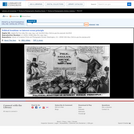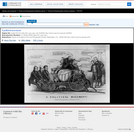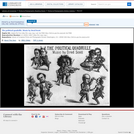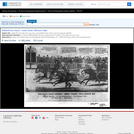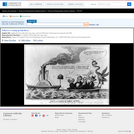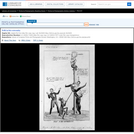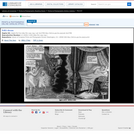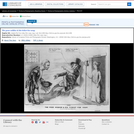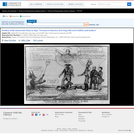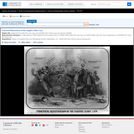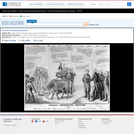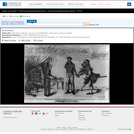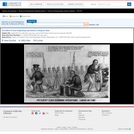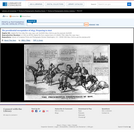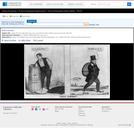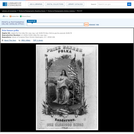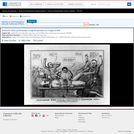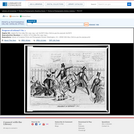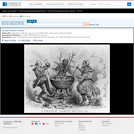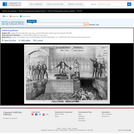
A cryptic satire critical of Lewis Cass and incumbent President James K. Polk. The work probably appeared prior to the Whig national convention (June 9-10), since reference is made to a Clay-Fillmore ticket. (The convention nominated Taylor and Fillmore.) On a stone pavement above a moat, Lewis Cass (center) presides over a grisly scene of execution. To the left of Cass stands Polk, wearing an executioner's smock and resting his hands upon an ax. A man named "Morton" lies on the block before them, having just been decapitated. His head falls into the moat, which holds the mutilated corpses of several previous victims. ("Morton" may be Marcus Morton, a perennial Democratic candidate for governor of Massachusetts, who won only two elections in fifteen years.) Cass leads four more victims in chains (left) toward the block, saying, "Here are some of the Ring Leaders I think we had better dispose of them first." Polk replies, "Bring them on Cass, I'll soon do their business." The first "Ring Leader," named "Lawrence," says to Cass, "I am willing to pass through your Guillotine but I will not do your dirty work." Abbott Lawrence was a leading candidate for the 1848 vice presidential nomination. Above Cass and Polk the words "Mene, Mene, Tekel Upharsin" appear in a burst of light. These words come from the Old Testament, Dan. 5: 25-28: "God hath numbered thy kingdom, and finished it. Thou art weighed in the balances, and art found wanting. Thy kingdom is divided, and given to the Medes and Persians." At right appear Henry Clay, Millard Fillmore, "Hall," "Graham," and a crowd of Clay supporters. Clay points to the words in the sky. Behind them is a mound with a Temple of Liberty on top, inscribed with the words, "Clay, Fillmore, Free Soil & No Extension of Slavery." Behind Cass and Polk stand a line of troops. In the left background is a portal through which the Custom-House, symbol of Democratic patronage, is visible. Several men with arms folded stand in front of it.|Lith. & pubd. by H.R. Robinson, 31 Park Row N.Y. (Adjoining Lovejoy's Hotel.)|Probably drawn by "W.J.C."|Title appears as it is written on the item.|Weitenkampf, p. 92.|Forms part of: American cartoon print filing series (Library of Congress)|Published in: American political prints, 1766-1876 / Bernard F. Reilly. Boston : G.K. Hall, 1991, entry 1848-36.
- Subject:
- History
- U.S. History
- Material Type:
- Diagram/Illustration
- Primary Source
- Provider:
- Library of Congress
- Provider Set:
- Library of Congress - Cartoons 1766-1876
- Date Added:
- 06/13/2013
